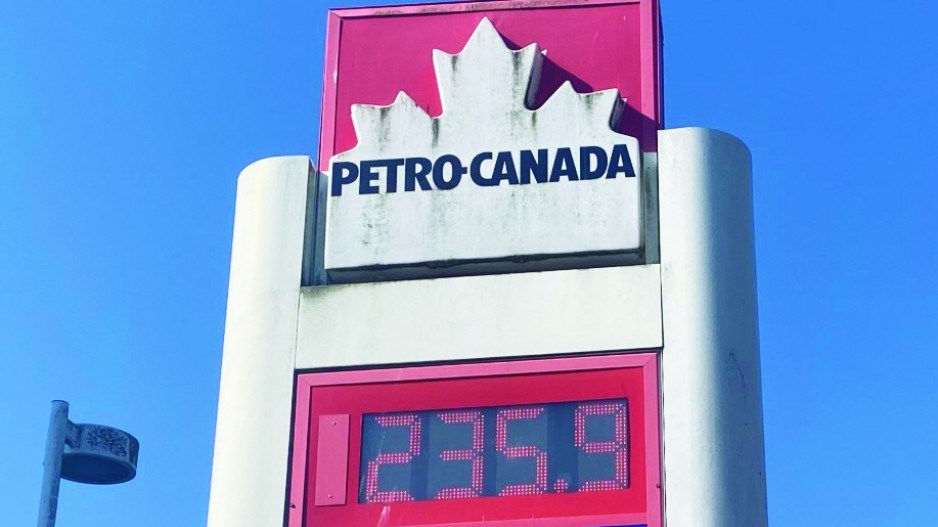A key driver of inflation – high gasoline and diesel prices – are expected to continue well into 2023, and it’s not just high oil prices and loss of Russian oil that will drive volatility, according to a new forecast from Kalibrate.
The retail analytics firm warns gasoline and diesel prices could be even higher in 2023 than they were in 2022, though some relief could come towards the end of 2023 for B.C., should the Trans Mountain pipeline’s new line go into operation, which could provide more refined fuels from Alberta.
The world has lost 4.5 million barrels of refining capacity over the last two years, Kalibrate estimates, about 500,000 barrels of which were North American barrels.
In a market where refining capacity is already tight, a single refinery outage in a given region can send prices skyrocketing.
“It should be expected that as we move forward in 2023 that this pattern of increased volatility and higher prices will continue,” the Kalibrate report warns.
It was, in fact, refinery outages, not high oil prices, that drove gasoline prices to record breaking levels in the summer of 2022.
“During the summer season refinery shutdowns for scheduled or unscheduled maintenance, in part due to the adjoining wildfire season in California, led to prices rising to new heights across all markets,” the report explains. “Consequently, the West Coast of Canada and the U.S. experienced record high prices during the summer season.”
Crude oil prices are expected to remain higher in 2023 than they would be, were it not for sanctions on Russian oil.
A combination of high oil prices and tight refining capacity could mean gasoline and diesel prices breaking some new records in 2023, even if Canada is in a recession -- something that normally tempers oil and gasoline prices.
“By mid-2023, Canada is expected to be in a recession,” Kalibrate warns. “It is quite possible that during this recessionary period that fuel prices will continue to inflate to levels that exceed those records set in the summer of 2022.
“The West Coast is expected to continue to see the most dramatic swings, but possibly with some relief to come from the startup of the Trans Mountain pipeline which can deliver additional crude and refined products to … British Columbia.



